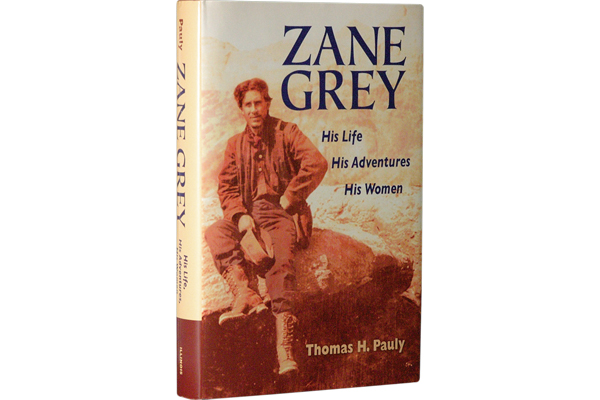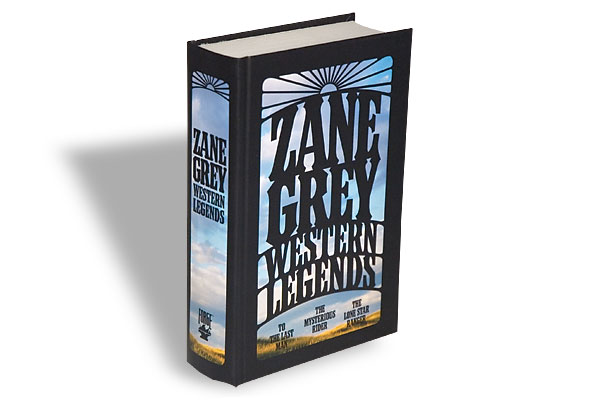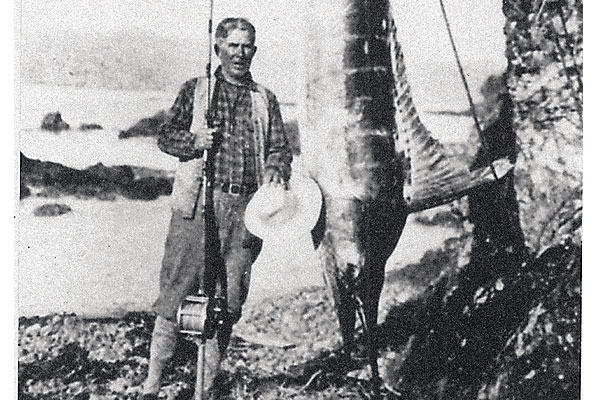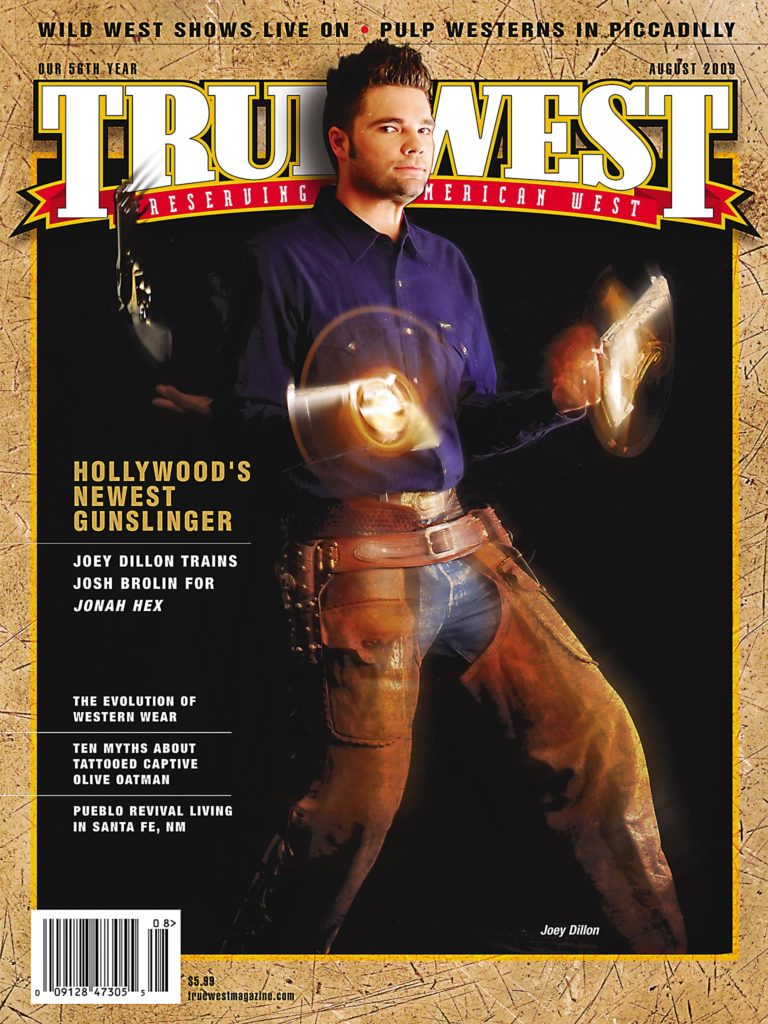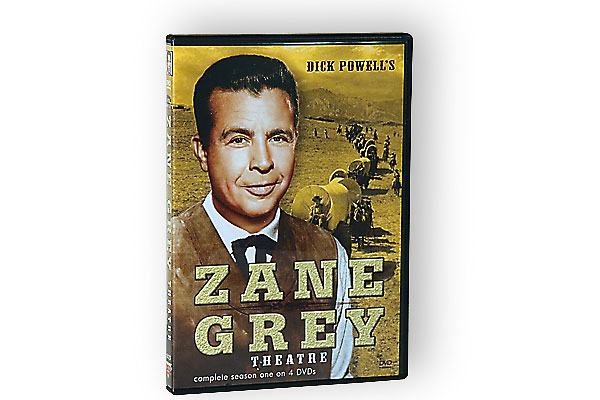
Buyers of this DVD collection, which presents the first season of TV’s Zane Grey Theater, will find an essay I wrote sharing Zane Grey’s phenomenal success as a writer of Western stories in the first half of the 20th century. Grey’s popularity, and the birth of the Western movie, happened in the second decade of the 20th century, pretty much the same way that Stephen King’s books and the horror movie industry took off in the 1970s.
The second part of the essay describes how Four Star, a TV production company founded in Los Angeles by movie stars Dick Powell, Ida Lupino, Charles Boyer and David Niven, and producer Don Sharpe, set up shop in the early 1950s, when Hollywood was still finding its legs in the TV game. Noting the success of Gunsmoke on TV, Powell and company wisely got out the chaps and spurs, grabbed Zane Grey’s enormous shingle to hang over the door and created the first Western anthology series on TV; it premiered in October 1956.
They didn’t use much of Grey’s actual material, but his name granted instant legitimacy. A steady parade of guest appearances by well-known personalities, such as Jack Palance, singer Julie London and recent Oscar-winner Ernest Borgnine, guaranteed a sizable, steady viewership.
Zane Grey’s Theater also helped test out new stars and series concepts, serving as pilots for shows like Sam Peckinpah’s The Westerner, Trackdown, with Robert Culp as an annoyingly hip Texas Ranger, The Rifleman, and, one spin removed, Wanted Dead or Alive, starring Steve McQueen.
The quality of the remastered transfers on these discs is first rate. The only problem VCI faced was editing done years ago that nibbled at the openings and closings of Dick Powell’s weekly introductions to remove old sponsorship plugs. It doesn’t hurt in the slightest.
The one criticism I have is that a few of the scripts, particularly those written by the future kitsch king Aaron Spelling, are really awful. It’s only a handful, but, seriously folks, they reek.
The extras on this collection are a couple of Maxwell House commercials (is that Sheb Wooley?), a recorded conversation with Christine Becker, author of It’s The Pictures That Got Small, discussing the Four Star company, and a nice video interview with Norman Powell, Dick Powell’s adopted son by way of his marriage to Joan Blondell. He reveals what we all assumed: Powell was a busy guy, but a pretty good dad.
This was, and still is, quality TV. I’m hoping that sales of this collection warrant the release of the four subsequent seasons; the audience deserves it.


